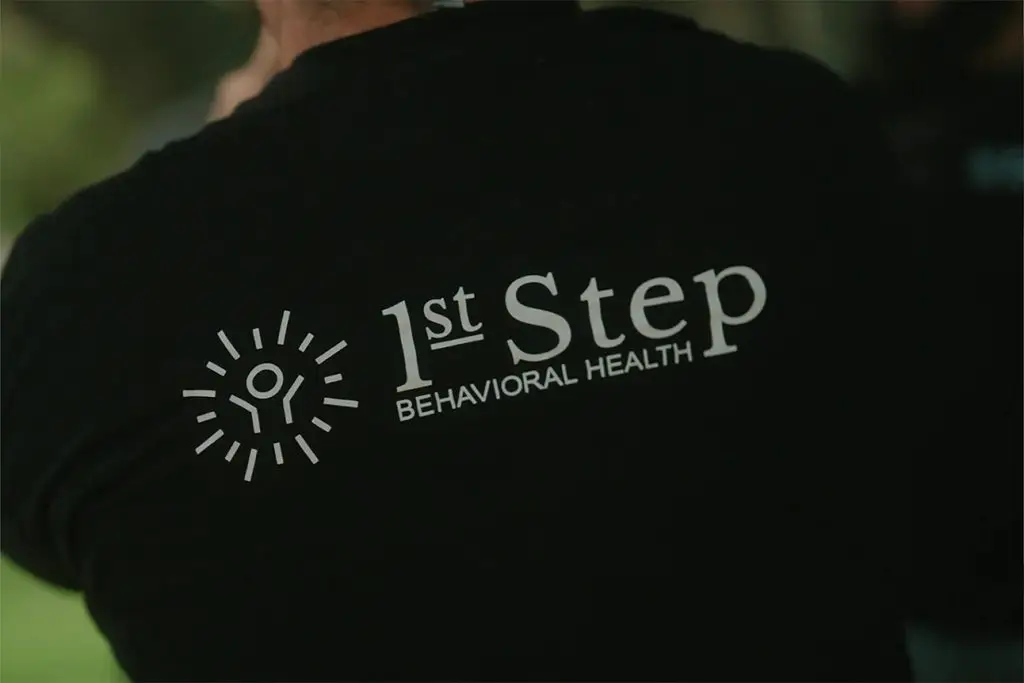Eating Disorder Treatment
First Step Behavioral Health offers a combination of evidence-based and holistic treatment for eating disorders in Pompano Beach. Our goal is to help people create healthy relationships with food, their bodies, and their emotions. Over time, our clients can overcome eating disorders and unhealthy behaviors thanks to our reputable and compassionate treatment program.


Eating Disorders: Causes, Symptoms, and Treatment
Eating disorders are severe mental health conditions that are characterized by intense and persistent disturbances in eating behaviors. Distressing thoughts and emotions often accompany them. According to research, “An estimated 9% of the U.S. population, or 28.8 million Americans, will have an eating disorder in their lifetime.”[1]
At First Step Behavioral Health in South Florida, we aim to help clients understand their symptoms, uncover the causes, and find effective treatment. In this guide, you will learn about the different types of eating disorders and the treatment options available that will help you achieve recovery.
Understanding Eating Disorders
Eating disorders are psychiatric conditions characterized by unhealthy eating habits, distorted body image, and often co-occurring mental health issues like anxiety, depression, or personality disorders. The three most common types include:
1. Anorexia Nervosa
Marked by food deprivation, excessive exercise, and an intense fear of gaining weight. Individuals often have a distorted body image and extremely low body weight.
2. Bulimia Nervosa
Involves cycles of binge eating followed by purging behaviors like vomiting, fasting, or over-exercising. This pattern can have severe consequences on both mental and physical health.
3. Binge Eating Disorder (BED)
The most prevalent eating disorder in the U.S., unlike bulimia, binge eating episodes are not followed by purging. It’s associated with guilt, shame, and a loss of self-control.
Other types include avoidant/restrictive food intake disorder (ARFID), orthorexia, and compulsive overeating—all of which can be just as damaging.
Warning Signs & Symptoms
Identifying the early warning signs can lead to faster intervention. These include:
- Obsessive focus on food, calories, or body image
- Drastic changes in weight
- Mood swings, irritability, or withdrawal from social situations
- Physical symptoms like dizziness, hair loss, or irregular menstruation
- Compulsive exercising or skipping meals
- Signs of purging (e.g., frequent bathroom visits after meals)
These signs often accompany co-occurring mental health conditions such as anxiety disorders, mood disorders, and substance use disorders.
Causes and Risk Factors
There is no single cause of eating disorders. Instead, they stem from a mix of biological, psychological, and environmental factors:[2]
- Genetics: A family history of eating disorders or mental illness increases risk.
- Psychological Factors: Low self-esteem, perfectionism, and trauma play a significant role.
- Sociocultural Pressure: Unrealistic beauty standards in the media can shape unhealthy body image.
- Life Events: Major transitions, bullying, or abuse can trigger disordered eating patterns.
Understanding these root causes is critical to developing an effective and personalized treatment plan.

How Eating Disorders Are Treated in Pompano Beach
Pompano Beach, Florida, offers a range of evidence-based treatment programs designed to meet the unique needs of each patient. These programs are often provided in settings like residential treatment centers, intensive outpatient programs (IOPs), and partial hospitalization programs (PHPs).
1. Residential Treatment
Ideal for individuals needing 24/7 supervision and structured support. Patients receive individualized care from a multidisciplinary team that includes therapists, registered dietitians, and medical professionals.
2. Partial Hospitalization Program (PHP)
PHPs are comprehensive, day-based programs for individuals who need a high level of care but not full-time supervision. They offer a combination of:
- Group therapy and individual therapy
- Nutritional counseling
- Family therapy
- Medical monitoring
3. Intensive Outpatient Program (IOP)
IOPs are a step-down from PHP and allow patients to maintain daily routines while receiving structured therapy several days a week.

Treatment Modalities Used When Treating Eating Disorders
1. Eating Disorder Therapy
Therapy is the cornerstone of eating disorder recovery. Modalities include:
- Cognitive Behavioral Therapy (CBT): Targets unhelpful thought patterns around food and self-image.
- Dialectical Behavior Therapy (DBT): Effective for emotional regulation and co-occurring mental health issues.
- Art Therapy: Encourages expression and healing through creativity.
- Family Therapy: Helps family members support recovery and resolve relational dynamics.
2. Nutritional Counseling
Guided by a registered dietitian, this therapy focuses on restoring physical health, building healthier relationships with food, and addressing compulsive overeating or food aversion.
3. Medical and Psychiatric Care
Integrated care involves monitoring vitals, managing co-occurring conditions, and prescribing medications for anxiety disorders, mood disorders, or other relevant diagnoses.
The Importance of a Personalized Treatment Plan
There is no one-size-fits-all approach to eating disorder treatment. Successful recovery hinges on developing a personalized treatment plan that considers:
- Medical history
- Severity of symptoms
- Accompanying mental health conditions
- Family dynamics
- Personal goals and values
A well-crafted plan provides structure, accountability, and a roadmap for long-term recovery.
Why Choose Treatment Centers in Pompano Beach?
Pompano Beach, Florida, offers not just beautiful coastal surroundings but also access to nationally recognized facilities, like First Step Behavioral Health, which is accredited by the Joint Commission.
Here’s what sets these centers apart:
- Emphasis on compassionate care in a safe space
- Deep expertise in treating complex, co-occurring mental health issues
- Coverage by major insurance
- Focus on lasting recovery through aftercare and relapse prevention
The healing process is not just about symptom reduction—it’s about rebuilding self-esteem, rediscovering joy in everyday life, and fostering mental well-being.
Living Beyond the Disorder
Eating disorders often rob individuals of the present moment—constantly consumed by thoughts of food, weight, and control. But recovery is possible. With the right treatment team, support network, and determination, patients can:
- Cultivate self-compassion
- Reclaim physical health and vitality
- Reconnect with loved ones
- Build confidence in navigating daily life without shame or fear
Get Connected to Reputable Eating Disorder Treatment in Pompano Beach
Recovery isn’t linear. It’s a winding journey of setbacks and progress, courage and vulnerability. But every small victory counts—from the first therapy session to the first meal enjoyed without guilt.
If you or someone you know is struggling, don’t wait. Seek help.
First Step Behavioral Health in Pompano Beach, Florida, is equipped to guide you through every stage of the recovery process. Whether you need inpatient care, outpatient support, or just more support understanding your options, compassionate professionals are ready to help you take back control and move toward a life of mental well-being and self-acceptance.
Frequently Asked Questions (FAQ)
1. How do I know if I need professional help for disordered eating?
If your thoughts about food, body image, or weight are interfering with your relationships, ability to focus, or overall quality of life, it’s time to seek help. You don’t need to be underweight or meet strict diagnostic criteria to benefit from treatment. Early intervention significantly improves outcomes.
2. What should I expect during an intake assessment at a treatment center?
An intake typically includes a comprehensive interview about your eating habits, medical history, mental health background, and daily functioning. You may also meet with a therapist, psychiatrist, and registered dietitian. The goal is to create a personalized treatment plan that fits your clinical and emotional needs.
3. Can I continue school or work while receiving treatment?
Yes, depending on the level of care. Intensive outpatient programs (IOPs) and some partial hospitalization programs (PHPs) offer flexible schedules that can accommodate work or school. Treatment centers may also provide academic or vocational support as part of your care plan.
4. Are virtual or telehealth options available for eating disorder treatment?
Many centers now offer telehealth services, including virtual therapy sessions, nutritional counseling, and psychiatric check-ins. This can be a valuable option for individuals with transportation barriers or those transitioning out of more intensive care.
5. How can I support a friend or family member in recovery?
Support them by listening without judgment, avoiding diet talk, and learning about eating disorders. Encourage open communication and help them stick to their treatment plan. Attending family therapy sessions, if available, can also strengthen your role in their healing process.
6. What happens after completing a residential or PHP program?
After higher levels of care, individuals often transition to outpatient therapy and continued nutritional counseling. Many treatment centers offer aftercare planning and relapse prevention strategies, ensuring patients have a safe space and the tools to maintain recovery in daily life.
References:
- The National Eating Disorder Association (NEDA): Eating Disorder Statistics
- JAMA Network: Eating Disorders: A Review
Get Help From Our Eating Disorder Treatment Program in Pompano Beach, FL
At 1st Step Behavioral Health, we take a holistic approach to eating disorder treatment, helping individuals improve all areas of their lives using individualized care. Learn more about your treatment options by speaking with a mental health specialist. You can contact us by dialing or texting (855) 425-4846.
